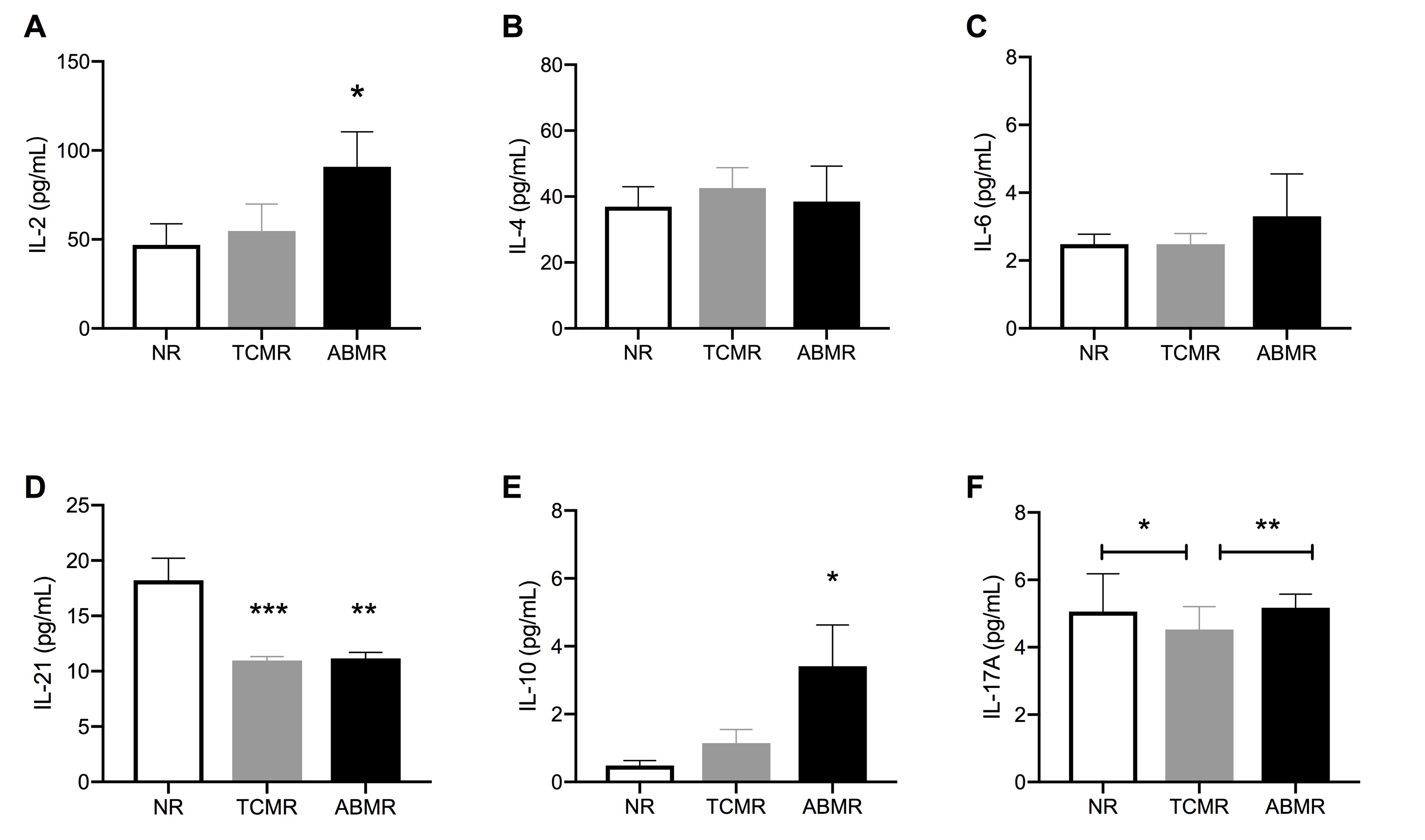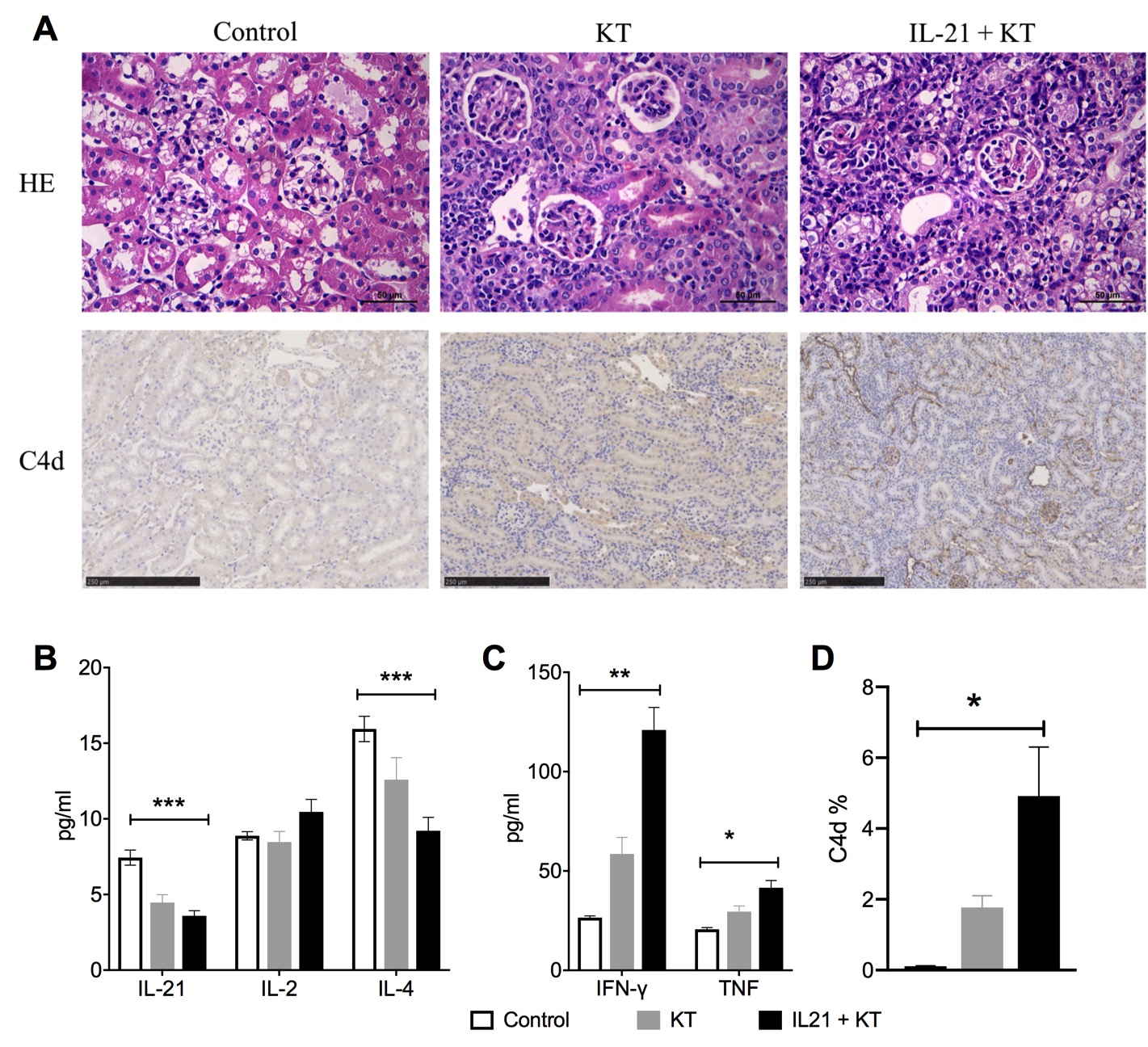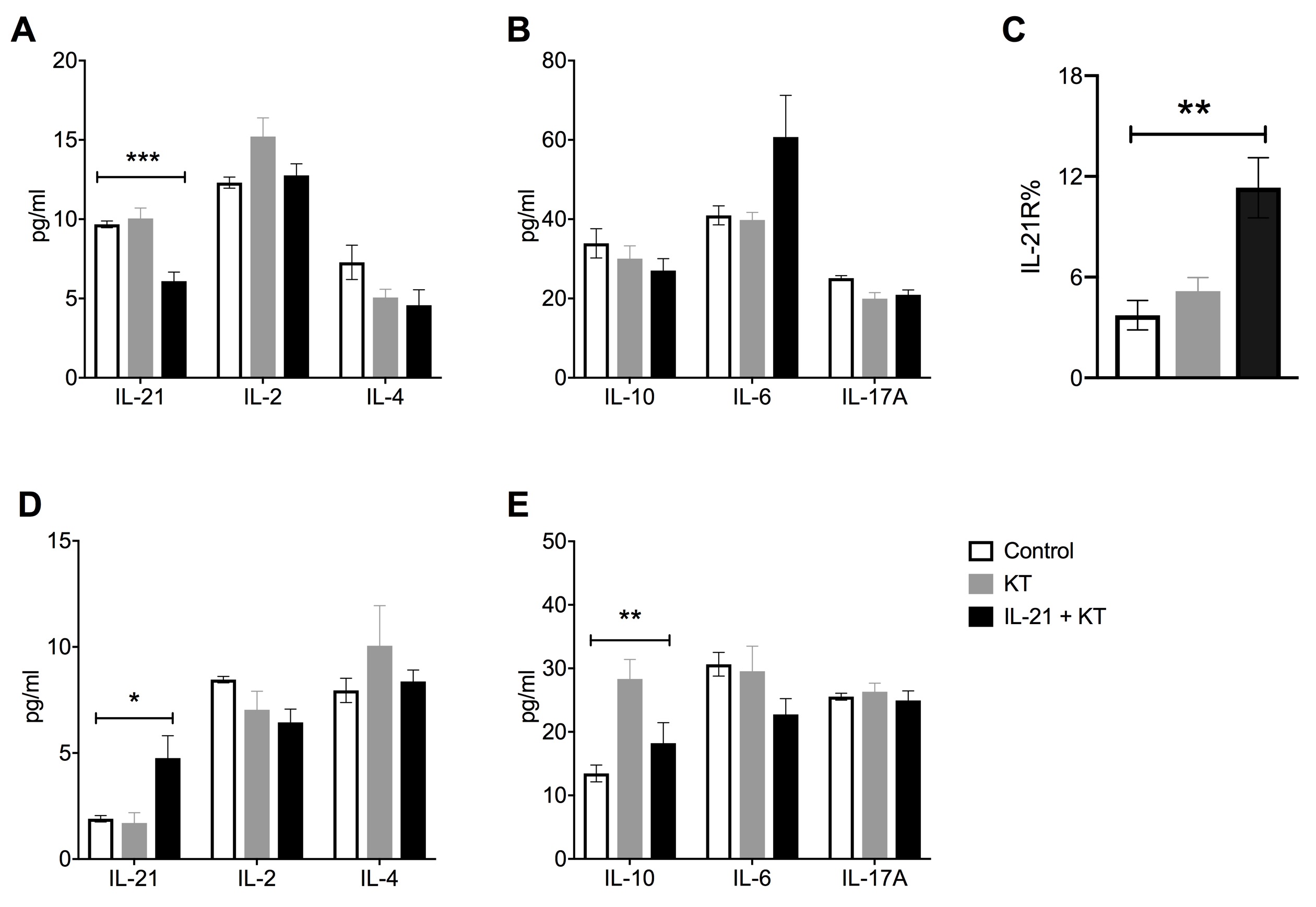IL-21, a Potential Target of Active Rejection in Renal Transplantation
Kidney Disease Center, First Affiliated Hospital of Zhejiang University, Hangzhou, China
Meeting: 2020 American Transplant Congress
Abstract number: A-347
Keywords: Kidney transplantation, Tolerance
Session Information
Session Name: Poster Session A: Acute Rejection
Session Type: Poster Session
Date: Saturday, May 30, 2020
Session Time: 3:15pm-4:00pm
 Presentation Time: 3:30pm-4:00pm
Presentation Time: 3:30pm-4:00pm
Location: Virtual
*Purpose: Rejection remains an obstacle to overcome after transplantation. IL-21 is the most potent stimulators of driving GC B cells into plasma cells. Basic researches about the role of IL-21 in immune status after transplantation are limited. A higher level of IL-21 in patients with stable status after transplantation was observed by Luminex assay, which triggered our interests in studying the function of IL-21 in kidney transplantation.
*Methods: Luminex assay was used to analyze the cytokine signature and antibody class-switching level in patients with no rejection (NR)(n=30), TCMR (n=28), and ABMR (n=8). Then, a rodent kidney transplantation model was established with injected exogenous IL-21 to mimic the serum IL-21 level in stable patients. The histopathology evaluation, cytokine levels, and lymphocytes were analyzed to illuminate the mechanism of allograft rejection.
*Results: A distinct cytokine signature in patients with active rejection was found. The IL-21 level in NR cohort was significantly higher than both TCMR (P <0.001) and ABMR (P =0.005) cohorts. An enhanced antibody class switching rate was observed in both rejection cohorts, TCMR and ABMR. In contrast, exogenous IL-21 administration accelerated the active rejection after KT. Further analysis revealed that the increase of IL-21 in spleen induced proliferation of CD4+ T cells and CD19+ cells after IL-21 treatment.
*Conclusions: IL-21 plays a critical role in active rejection after kidney transplantation, that could be a potential therapy target of active rejection.
To cite this abstract in AMA style:
Shen J, Wang R, Guo L, Lv J, Wu J, Chen J. IL-21, a Potential Target of Active Rejection in Renal Transplantation [abstract]. Am J Transplant. 2020; 20 (suppl 3). https://atcmeetingabstracts.com/abstract/il-21-a-potential-target-of-active-rejection-in-renal-transplantation/. Accessed February 20, 2026.« Back to 2020 American Transplant Congress



